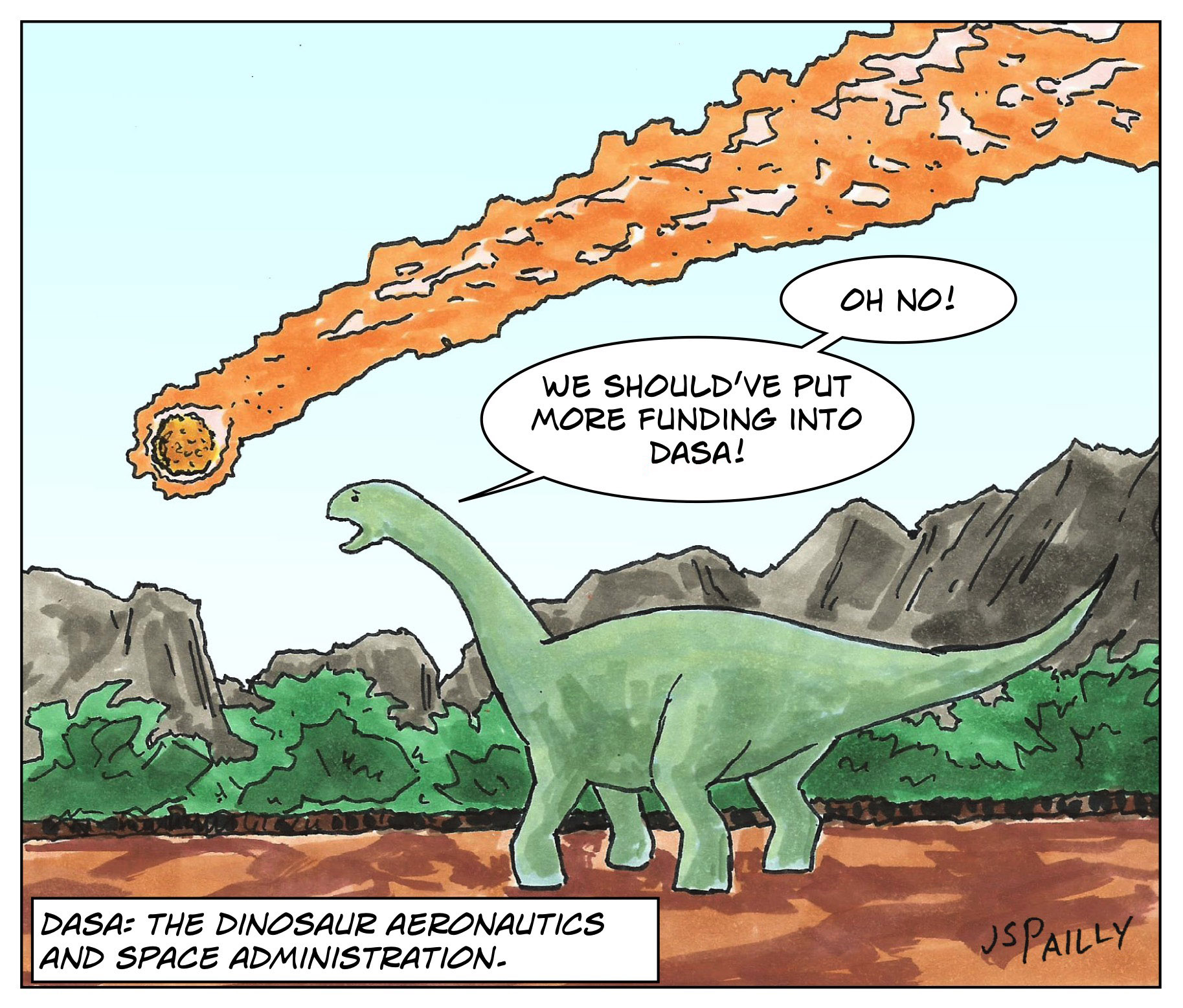Sciency Words: (proper noun) a special series here on Planet Pailly focusing on the definitions and etymologies of science or science-related terms. Today’s Sciency Word is:
THE SILURIAN HYPOTHESIS
I’ve heard several variations on this joke. Why did the dinosaurs go extinct? Because they didn’t put enough money into their space program.

But what if that isn’t a joke? What if the dinosaurs (or some other prehistoric creatures) did establish an advanced civilization right here on Earth millions of years before we came along? Could such a civilization come and go without leaving any trace for us modern humans to find? Or could the traces be there for us to see, and we just haven’t recognized them yet?
In 2018, NASA astrobiologists Gavin Schmidt and Adam Frank presented this idea in a formal scientific paper titled “The Silurian Hypothesis: Would it be possible to detect an industrial civilization in the geological record?” As Schmidt and Frank explain in a footnote:
We name the hypothesis after a 1970 episode of the British science fiction TV series Doctor Who where a long buried race of intelligent reptiles “Silurians” are awakened by an experimental nuclear reactor. We are not however suggesting that intelligent reptiles actually existed in the Silurian age, nor that experimental nuclear physics is liable to wake them from hibernation.
Schmidt and Frank go on to examine some of the ways human industrial activities have changed this planet, and how those changes are being recorded geologically. They also examine a few of the oddities and anomalies in the geological record as we currently know it.
To be clear, there is absolutely no definitive evidence that another advanced civilization existed on Earth before our own. Schmidt and Frank go to great pains to emphasize that they don’t actually believe their own hypothesis to be true.
The Silurian Hypothesis is intended to be more of a thought experiment than anything else. It’s meant to help us better understand how human civilization is changing this planet, and also (remember Schmidt and Frank are NASA astrobiologists) how alien civilizations might be changing their own worlds.
P.S.: The Silurian Hypothesis is also a wonderful example of how science fiction can inspire real life science.
I know it’s occurred to me before that some of the mass extinction events might have been industrial civilizations that let things get out of control. Granted, tectonic processes would erase large swathes of whatever a previous civilization left behind. But if there is a geological record of the extinction events, then it seems like something of the industrial nature of it should also be in that record.
LikeLiked by 1 person
I agree. It’s possible that their technology was very different from ours, though. For example, if we found plastics mixed into the rock strata, we’d know what that means. But if a prehistoric civilization never made extensive use of plastic and chose to use some other material instead, maybe we wouldn’t recognize that material for what it is.
LikeLiked by 1 person
I like these kinds of thought processes.
LikeLiked by 1 person
I do too. It’s a really fun concept to think about. And even if the Silurian Hypothesis is false (which it probably is) it can still help us learn more about life in the universe.
LikeLike
I agree and it can also help us to work out these problems or questions that we don’t know exist or are afraid to ask.
LikeLiked by 1 person
Maybe they did travel to the stars and are about to return …
LikeLiked by 1 person
There’s a section about that in the original paper, actually. Not that they’re going to return, but if they ever sent probes or anything like that into space, they might still be drifting around the Solar System for us to find.
LikeLiked by 1 person
My first thought was of the Voth from Star Trek: Voyager:
https://memory-alpha.fandom.com/wiki/Distant_Origin_(episode)
LikeLiked by 1 person
I thought of them too. I would’ve preferred this to be the Voth Hypothesis, but I guess the Whovians got to this before the Trekkies did.
LikeLiked by 1 person